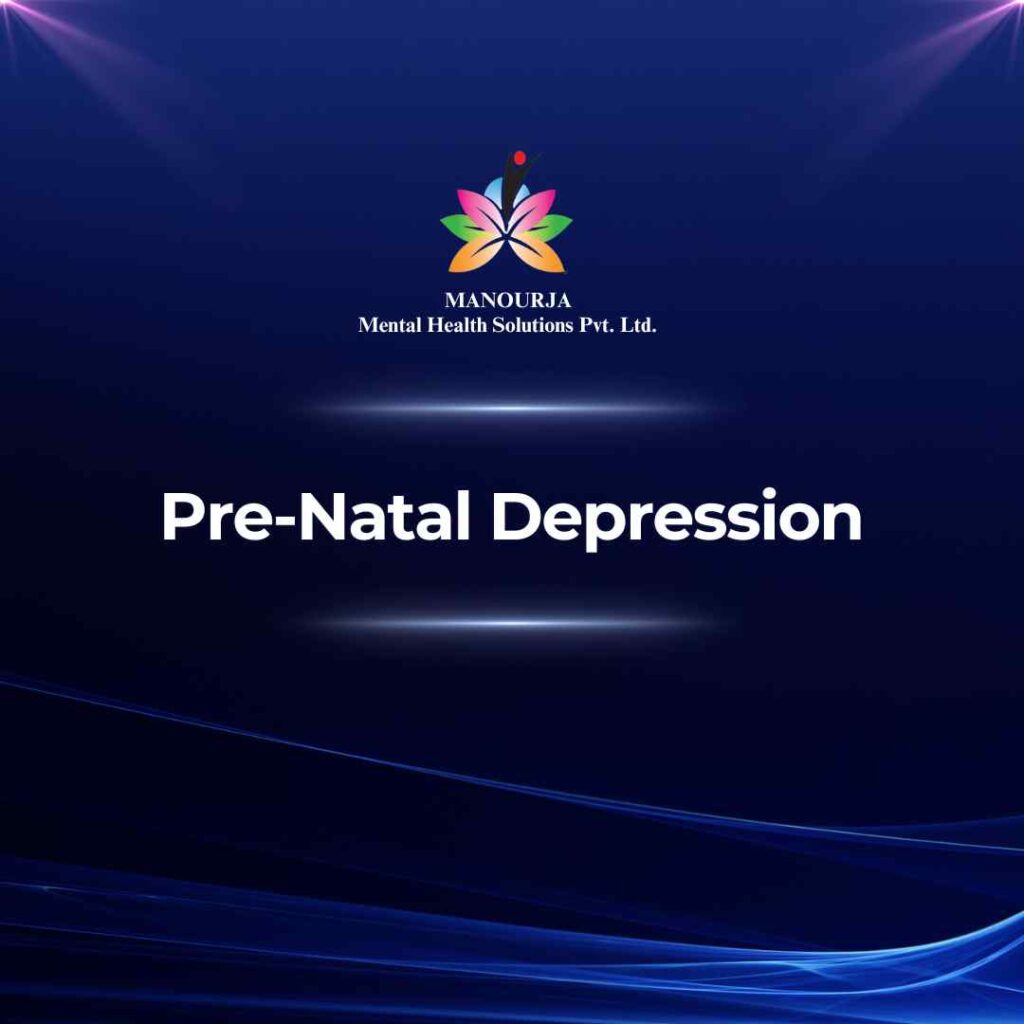Pre-Natal Depression

Pre-natal depression involves a consistent pattern of depressive symptoms that occur during pregnancy. It is important to distinguish this from normal mood fluctuations that can happen due to hormonal changes during pregnancy. The condition affects an expectant mother’s well-being and can potentially impact her ability to care for herself and her unborn child.
Characteristics
The symptoms of pre-natal depression are similar to those of other forms of depression and can include:
- Persistent sadness or low mood that lasts for weeks or longer, rather than brief emotional responses.
- Anxiety and irritability which might be higher than typical pregnancy-related emotional changes.
- Lack of interest in activities that were previously enjoyed.
- Feelings of guilt, hopelessness, or worthlessness.
- Changes in eating and sleeping habits, such as eating much more or less than usual, or suffering from insomnia or excessive sleep.
- Difficulty concentrating and making decisions.
- Lack of energy or motivation, feeling tired all the time.
- Withdrawal from social interactions and activities.
- Physical symptoms such as aches and pains without a clear physical cause, or digestive problems not due to physical illness.
Forms
Pre-natal depression can vary in its presentation:
- Some women may experience mild to moderate symptoms that, while distressing, can be managed with some supportive treatments and minor adjustments in lifestyle.
- Others may suffer from severe depression that interferes significantly with their daily functioning, requiring more intensive treatment.
Treatment
The treatment of pre-natal depression involves a combination of psychological and medical interventions:
- Psychotherapy: Cognitive-behavioral therapy (CBT) and interpersonal therapy (IPT) are commonly used to treat pre-natal depression. These therapies help the expectant mother to cope with negative thoughts, manage stress, and improve interpersonal relationships.
- Support groups: Joining a support group can provide valuable reassurance and assistance from others who are going through similar experiences or have in the past.
- Medication: If depression is moderate to severe, antidepressant medications may be prescribed. The decision to use medication during pregnancy is made carefully, considering potential risks and benefits to both the mother and the unborn baby. SSRIs are commonly prescribed but always under close medical supervision.
- Lifestyle changes: Encouraging regular physical activity, adequate rest, and a nutritious diet can help manage symptoms. Mindfulness, yoga, and other relaxation techniques may also be beneficial.
It is crucial for pregnant women experiencing symptoms of depression to seek help early. Early treatment can improve outcomes for both the mother and her child. Pre-natal care providers should be vigilant about screening for mood disorders during pregnancy to ensure timely support and intervention.
At MANOURJA, we believe in the transformative power of counseling. Our experienced therapists offer a safe and supportive space where you can explore your thoughts, emotions, and challenges. Through personalized counselling sessions, we’ll work together to develop coping strategies, build resilience, and achieve lasting positive change. Discover the path to a healthier, happier you with MANOURJA counselling services.
MANOURJA Rehabilitation Services
At MANOURJA, we’re dedicated to helping you in rebuild your life, after difficult times. Our rehabilitation services focus on understanding what you need to move forward, whether you’re recovering from addiction, trauma, or any psychological – social challenges. We create personalized plans, that are all about helping you, regain your strength and find hope again. With a caring team by your side, you’ll have the support to make real progress and take steps toward a brighter, healthier future.
